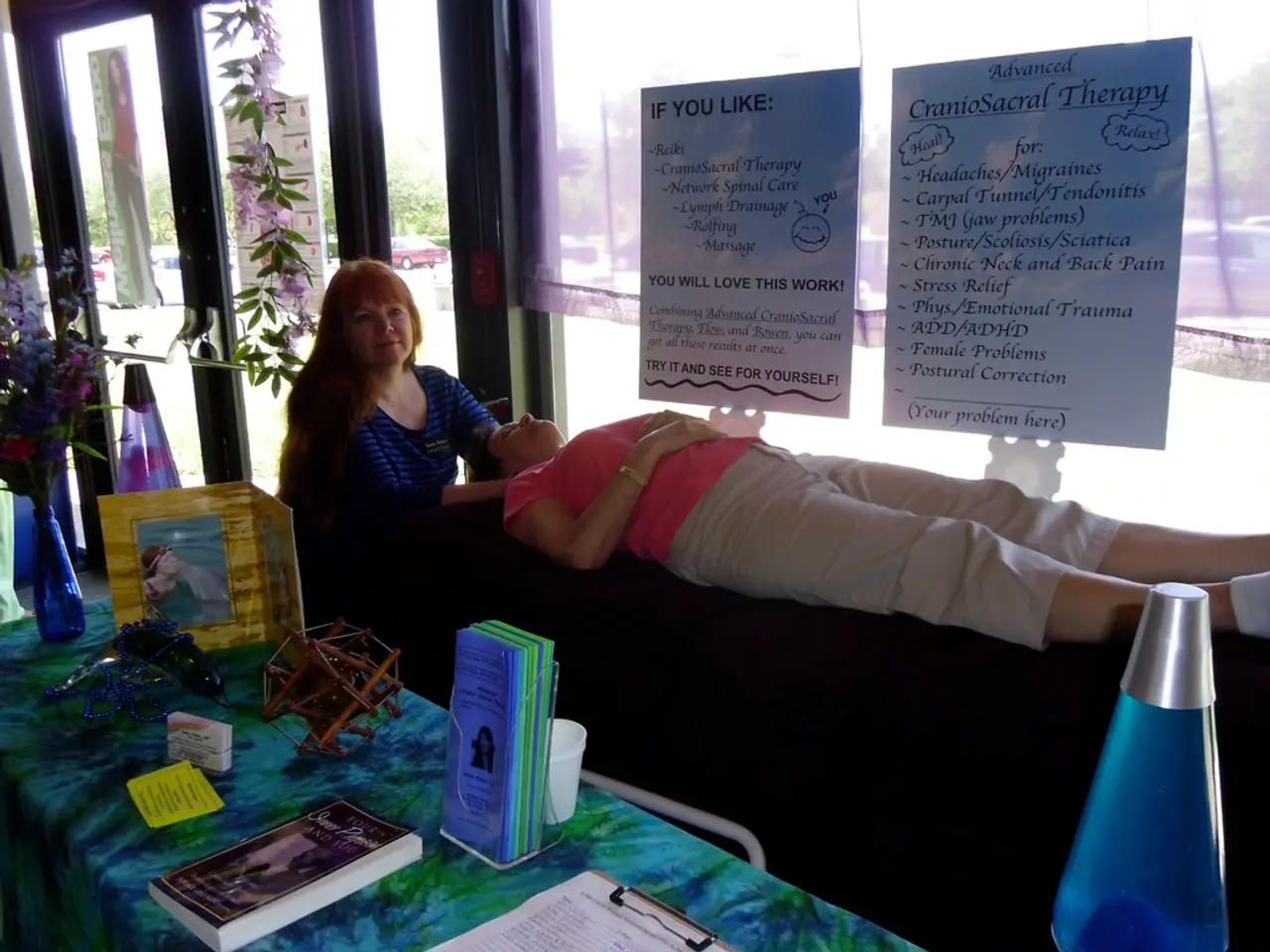Navigating and Conquering Social Fears: Recognizing Symptoms and Tactics
Social anxiety disorder (SAD) can be a significant mental health issue, affecting more than just occasional shyness. People with social anxiety often experience intense fear in social situations, such as meeting new people or speaking in front of a group. This fear can lead to physical symptoms like trembling hands, a racing heart, and sweating.
Fortunately, there are several strategies and treatments that can help individuals manage and overcome social anxiety.
Cognitive-Behavioral Therapy (CBT) is considered the gold standard for treating social anxiety. It helps individuals identify and challenge negative thought patterns that fuel fear of social situations. CBT replaces these distortions with more realistic, balanced thinking and teaches practical skills to manage anxiety and develop confidence.
Exposure therapy, often integrated within CBT, involves gradual and systematic confrontation with feared social situations in a controlled environment. This helps individuals learn that feared outcomes rarely happen and that anxiety diminishes with repeated exposure. Virtual reality exposure therapy is a modern adaptation offering controlled, repeatable social scenarios.
Mindfulness techniques, such as meditation and relaxation methods like deep breathing and progressive muscle relaxation, help reduce the physical and emotional manifestations of anxiety. These methods increase present-moment awareness and lower anxiety symptoms by promoting acceptance and non-judgmental observation of anxious thoughts.
While medication is not the sole focus of treatment, it is generally known that medications such as selective serotonin reuptake inhibitors (SSRIs) or benzodiazepines may be prescribed to reduce social anxiety symptoms when therapy alone is insufficient. Medication can help lower baseline anxiety, making therapy more effective.
Support groups provide a safe, understanding environment where individuals can share experiences, practice social skills, and receive encouragement. Group CBT formats also allow practicing social interaction skills among peers who face similar challenges, reducing feelings of isolation.
Social skills training enhances communication, emotional regulation, and relationship-building skills through practice and feedback. It helps individuals gain mastery in social situations, which directly addresses deficits or fears that contribute to social anxiety.
Collectively, these treatments work by addressing both the cognitive distortions, behavioural avoidance, and skill deficits that maintain social anxiety, empowering individuals to function more confidently in social environments.
In addition to these strategies, cultivating self-compassion can help alleviate anxiety and increase self-acceptance through practices like self-compassion meditation and journaling. Enhancing social connections can be achieved through social skills training, which provides feedback and helps individuals improve their interaction skills.
Avoidance of social gatherings can set up a vicious cycle, leading to future anxiety attacks and hindering the development of social skills. It is essential to confront feared situations gradually and with support to break this cycle.
For those seeking help, it is important to remember that social anxiety is a treatable condition. Strategies to overcome social anxiety include Cognitive-Behavioral Therapy (CBT), Mindfulness and Meditation, Exposure Therapy, Medication, Support Groups, and Social Skills Training. With the right approach and support, it is possible to manage and overcome social anxiety.
Building on the knowledge that social anxiety is a treatable condition, incorporating cognitive-behavioral therapy (CBT) into one's health-and-wellness plan can be beneficial, as it helps individuals challenge negative thought patterns that contribute to mental health issues. Furthermore, mindfulness techniques, such as meditation, can alleviate the physical and emotional symptoms of anxiety by promoting present-moment awareness and acceptance. Lastly, seeking support through group therapy, medication, or social skills training can provide a safe space to share experiences and develop skills to function more confidently in social situations.




